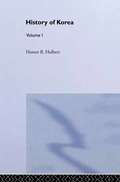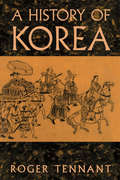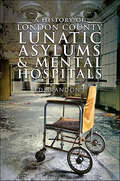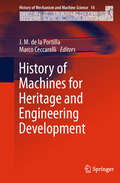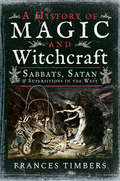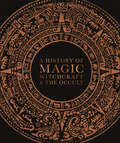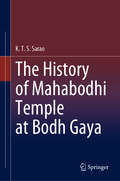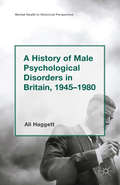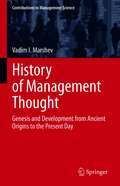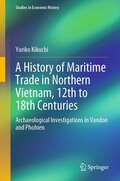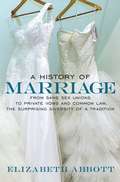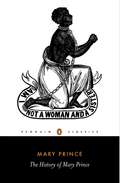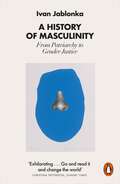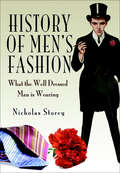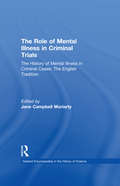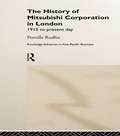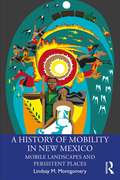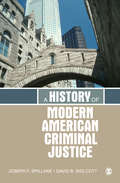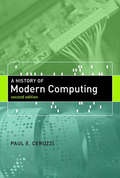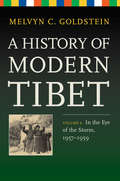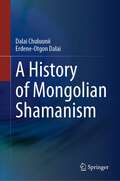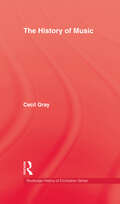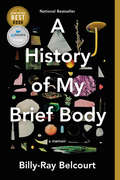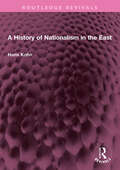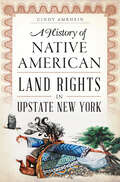- Table View
- List View
The History of Korea
by H. B. HulbertWith a modern introduction by Clarence Weems, originally published in Seoul in 1905 to wide acclaim as the only authentic history of Korea from prehistory to the Twentieth Century, this two volume work remains required reading for students of Western historiography of Korea.
History Of Korea
by Tennant"Go with me to a land whose life for ages has been a mystery", wrote a 19th-century visitor to Korea, "a land which from time unknown has kept aloof, whose people might have been the denizens of another planet". He may not have known that in the 4th century AD they had controlled much of north-east Asia and in the 8th their ships had dominated the trade of the Yellow Sea, nor did he guess the astonishing transformation that lay ahead of Korea in the 20th century - all of which are chronicled here. This is the first full-length general history of the country to be published in Britain, and incorporates in its early chapters Chinese and Korean material not previously published in any Western language. Beginning with the prehistoric era, the book provides a uniquely detailed treatment of the earlier periods in Korea's evolution. The work progresses through the era of the Three Kingdoms, Silla, Koguryo and Paekche; the Koryo period (918-1392 AD) which saw the war with the Khitan, the coming of the Mongols and the invasion of Japan; and the rule of the Yi dynasty from 1392 to 1910, which saw the flowering of Korean Confucianism, the invasion of Hideyoshi, the Manchu invasion, long periods of isolation and then the opening of the country to the West. Following this came the decades (1910-1945) when Korea was under Japanese rule; the period of the Sino-Japanese war, the Russo-Japanese war and Asian co-prosperity. Moving towards the present day, the work concludes with the story of the two Koreas and the drawing of the line between them, South Korea's economic successes and the adoption of a new constitution in 1987. Full and accurate records of all the significant persons and dates are provided, including events in China and Japan in so far as they involved Korea. Richly descriptive, with an emphasis on skilfull accounts of the major occurrences, battles and court scandals of the times, this lucidly written history makes absorbing reading, and should be welcomed by the general reader.
A History of London County Lunatic Asylums & Mental Hospitals
by Ed BrandonFrom the Middle-Ages onwards, London’s notorious Bedlam lunatic hospital saw the city’s ‘mad’ locked away in dank cells, neglected and abused and without any real cure and little comfort. The unprecedented growth of the metropolis after the Industrial Revolution saw a perceived ‘epidemic’ of madness take hold, with ‘county asylums’ seen by those in power as the most humane or cost-effective way to offer the mass confinement and treatment believed necessary. The county of Middlesex – to which London once belonged – would build and open three huge county asylums from 1831, and when London became its own county in 1889 it would adopt all three and go on to build or run another eight such immense institutions. Each operated much like a self-contained town; home to thousands and often incorporating its own railway, laundries, farms, gardens, kitchens, ballroom, sports pitches, surgeries, wards, cells, chapel, mortuary, and more, in order to ensure the patients never needed to leave the asylum’s grounds. Between them, at their peak London’s eleven county asylums were home to around 25,000 patients and thousands more staff, and dominated the physical landscape as well as the public imagination from the 1830s right up to the 1990s. Several gained a legacy which lasted even beyond their closure, as their hulking, abandoned forms sat in overgrown sites around London, refusing to be forgotten and continuing to attract the attention of those with both curious and nefarious motives. Hanwell (St Bernard’s), Colney Hatch (Friern), Banstead, Cane Hill, Claybury, Bexley, Manor, Horton, St Ebba’s, Long Grove, and West Park went from being known as ‘county lunatic asylums’ to ‘mental hospitals’ and beyond. Reflecting on both the positive and negative aspects of their long and storied histories from their planning and construction to the treatments and regimes adopted at each, the lives of patients and staff through to their use during wartime, and the modernisation and changes of the 20th century, this book documents their stories from their opening up to their eventual closure, abandonment, redevelopment, or destruction.
History of Machines for Heritage and Engineering Development
by J. M. Portilla Marco CeccarelliThis volume contains a selection of papers whose content have been presented at the International conferences CIPHI on Cultural Heritage and History of Engineering at University of Las Palmas de Gran Canaria in the Canary Islands, Spain, in recent years. The conference series is aimed at bringing together researchers, scholars and students from a broad range of disciplines referring to the History of Engineering and Cultural Heritage, in a unique multidisciplinary forum to stimulate collaboration among historians, architects, restaurateurs, and engineers. These papers illustrate, by treating specific emblematic topics and problems, technical developments in the historical evolution of engineering concerning cultural heritage. Thus, emphasis is given to a discussion of matters of cultural heritage with engineering history by reporting authors' experiences and views. Topics treated include: reutilization of industrial heritage: the unique example of the Royal Segovia Mint in Spain; the image of factories; Pedro Juan De Lastanosa and "the twenty-one books of devices and machines of Juanelo"; the historical development of paper-mills and their machines in South Latium during 19th century; a virtual reconstruction of a wave-powered flour mill from 1801; 3D modelling and animation study of the industrial heritage wonders; a new model of the hydraulic machine known as "el artificio de Juanelo"; and the mystery of one Havana portrait, on the first steam machine in Cuba. This work has been made possible thanks to the invited authors who have enthusiastically shared this initiative and who have spent time and effort in preparing the papers in much more detail that in the conference presentations.
A History of Magic and Witchcraft: Sabbats, Satan & Superstitions in the West
by Frances TimbersThe author of Magic and Masculinity explores the history and development of magic and witchcraft in Western society. Broomsticks, cauldrons, familiars, and spells—magic and witchcraft conjure a vivid picture in our modern-day imagination. While much of our understanding is rooted in superstition and myth, the history of magic and witchcraft offers a window into the past. It illuminates the lives of ordinary people in the past and elucidates the fascinating pop culture of the premodern world. Blowing away folkloric cobwebs, this enlightening new history dispels many misconceptions surrounding witchcraft and magic that we still hold today. From Ancient Greece and Rome to the Middle Ages and the Early Modern Era, historian Frances Timbers details the impact of Christianity and popular culture in the construction of the figure of the &“witch.&” The development of demonology and ceremonial magic is combined with the West&’s troubled past with magic and witchcraft to chart the birth of modern Wiccan and Neopagan movements in England and North America. Witchcraft is a metaphor for oppression in an age in which persecution is an everyday occurrence somewhere in the world. Fanaticism, intolerance, prejudice, authoritarianism, and religious and political ideologies are never attractive. Beware the witch hunter!
A History of Magic, Witchcraft, and the Occult (DK A History of)
by DKDiscover the beguiling history of witchcraft, magic, and superstition through the centuries in this stunningly illustrated title. A History of Magic, Witchcraft and the Occult charts the extraordinary narrative of one of the most interesting and often controversial subjects in the world, covering everything from ancient animal worship and shamanism, through alchemy and divination to modern Wicca and the resurgence of the occult in 21st-century literature, cinema, and television. Providing readers with a comprehensive account of everything from Japanese folklore and Indian witchcraft to the differences between black and white magic, and dispelling myths such as those surrounding the voodoo doll and Ouija, the book explores the common human fascination with spells, superstition, and the supernatural. This riveting read on witchcraft further includes: - Engaging text and lavish illustrations with over 500 full-color images that bring the subject to life.- Special features on aspects of magic, such as oracle bones of ancient China, the Knights Templar, and magic at the movies, and &“plants and potions&”, such as mandrake and belladonna examine topics in great detail.- Quick-fact panels explore magic origins, key figures, key deities, uses in spells, structures of religions, and more.The perfect introduction to magic and the occult, it explores forms of divination from astrology and palmistry to the Tarot and runestones and offers key insights into the ways in which magic has interacted with religion. The most comprehensive illustrated history of witchcraft available, A History of Magic, Witchcraft and the Occult will enthral and fascinate anyone interested in spiritualism and the occult.
The History of Mahabodhi Temple at Bodh Gaya
by K.T.S. SaraoThis book offers an overview of the emergence of Bodh Gayā as a sacred site within Gayā Dharmakṣetra. It contextualizes the different encounters, incidents, and legends connected to the Buddha’s experiences shortly before and after he attained Bodhi – when, spiritually speaking, he was extremely lonely and was trying to carve a place for himself in the highly competitive Gayā Dharmakṣetra. Further, the book examines the role of various personalities and institutions contributed towards the emergence of Mahābodhi Temple. It incorporates a wealth of research on the role of the Victorian Indologists as well as the colonial administrators, the Giri mahants, and Anagārika Dharmapāla, to understand the material milieu pertaining not only to its identity but also access to spiritual resources as its conservation and development. This book is an indispensable read for students and scholars of history, cultural studies, and art and architecture as well as practitioners of Buddhism and Hinduism.
A History of Male Psychological Disorders in Britain, 1945-1980 (Mental Health in Historical Perspective)
by Alison HaggettThis book is open access under a CC BY license and explores the under-researched history of male mental illness from the mid-twentieth century. It argues that statistics suggesting women have been more vulnerable to depression and anxiety are misleading since they underplay a host of alternative presentations of 'distress' more common in men.
History of Management Thought: Genesis and Development from Ancient Origins to the Present Day (Contributions to Management Science)
by Vadim I. MarshevThis book describes the millennia-long process of the genesis, formation, struggle, and change of views on the management of social organizations in various countries around the world; in other words, it characterizes the worldwide evolution of the History of Management Thought (HMT) - ideas, concepts, theories, paradigms, and scientific schools - from Antiquity to the present. The book is the outcome of extensive research, based on the analysis, generalization, and systematization of foreign and domestic published literature, as well as on the gathering and analysis of unique archival materials. For the first time in the historical and managerial literature, the book puts forward original definitions of three historical and managerial sciences - the History of Management, the History of Management Thought, and the Historiography of Historical and Managerial Research. It addresses the main challenges in pursuing Historical and Scientific Research (HSR), the main “subject” levels of HSR and specific methodological problems concerning HMT, as well as epistemological methods for identifying key factors in and causes of the advent and evolution of HMT. This book presents both the origins of management thought dating back to the 5th millennium BC and the latest management concepts of the early 21st century. In particular, it traces the origins and sources of management thought, reflected in the works of thinkers and statesmen of the Ancient World (Egypt, Western Asia, China, India, Greece, and Rome), the era of feudalism, and the Middle Ages (Byzantium, Western Europe, and England), the era of inception capitalism (Western Europe and the USA), as well as the new and recent history of management thought of the 20th and 21st centuries. In addition, for the first time in History of Management literature, it presents the history of Russian management thought from the 9th century to modern concepts and scientific schools.
A History of Maritime Trade in Northern Vietnam, 12th to 18th Centuries: Archaeological Investigations in Vandon and Phohien (Studies in Economic History)
by Yuriko KikuchiThis book analyzes the role of Đại Việt (Vietnam) in the maritime Asian trading network of the thirteenth through the eighteenth centuries as it systematically integrates the results of archaeological investigations. The first half of the book consolidates reports from excavations conducted at Vân Đồn and Phố Hiến, trading ports of Đại Việt, incorporating sophisticated archaeological techniques distinctive of Japan in the presentations of the data. These are accompanied by precise scale drawings, detailed classifications, and quantitative analyses of unearthed artifacts. The latter half of the book discusses the materials discovered in archaeological investigations, specifically ceramics and coins, in terms of the relations among sites and networks of production, distribution, and consumption, from a broader Asian geohistorical perspective. To this end, the diplomatic policies and trading activities of each era in Vietnam are discussed, integrating the results of archaeological investigations with studies of historical documents. Expanding beyond Vietnam, results of the archaeological investigations in other maritime Asian countries, such as Japan, Indonesia, Laos, and the Philippines, are introduced, to inform a comparative study that combines all such data from both archaeology and history in a single volume as materials for broader discussion. This book is expected to contribute to international academic discourse on the history of maritime Asia and help open a new phase of scholarly endeavor in this field.
A History of Marriage: From Same Sex Unions to Private Vows and Common Law, the Surprising Diversity of a Tradition
by Elizabeth AbbottWhat does the "tradition of marriage" really look like? In A History of Marriage, Elizabeth Abbott paints an often surprising picture of this most public, yet most intimate, institution. Ritual of romance, or social obligation? Eternal bliss, or cult of domesticity? Abbott reveals a complex tradition that includes same-sex unions, arranged marriages, dowries, self-marriages, and child brides. Marriage--in all its loving, unloving, decadent, and impoverished manifestations--is revealed here through Abbott's infectious curiosity.
The History of Mary Prince: A West Indian Slave
by Mary PrinceThe History of Mary Prince (1831) was the first narrative of a black woman to be published in Britain. It describes Prince's sufferings as a slave in Bermuda, Turks Island and Antigua, and her eventual arrival in London with her brutal owner Mr Wood in 1828. Prince escaped from him and sought assistance from the Anti-Slavery Society, where she dictated her remarkable story to Susanna Strickland (later Moodie). A moving and graphic document, The History drew attention to the continuation of slavery in the Caribbean, despite an 1807 Act of Parliament officially ending the slave trade. It inspired two libel actions and ran into three editions in the year of its publication. This powerful rallying cry for emancipation remains an extraordinary testament to Prince's ill-treatment, suffering and survival.
A History of Masculinity: From Patriarchy to Gender Justice
by Ivan Jablonka'Exhilarating . . . a work of scholarship, but also inspiration. . . Go and read Jablonka and change the world' Christina Patterson, Sunday Times'An unexpected bestseller in France. . . it has sparked conversations' ChallengesA highly acclaimed, bestselling work from one of France's preeminent historiansWhat does it mean to be a good man? To be a good father, or a good partner? A good brother, or a good friend? In this insightful analysis, social historian Ivan Jablonka offers a re-examination of the patriarchy and its impact on men. Ranging widely across cultures, from Mesopotamia to Confucianism to Christianity to the revolutions of the eighteenth century, Jablonka uncovers the origins of our patriarchal societies. He then offers an updated model of masculinity based on a theory of gender justice which aims for a redistribution of gender, just as social justice demands the redistribution of wealth. Arguing that it is high time for men to be as involved in gender justice as women, Jablonka shows that in order to build a more equal and respectful society, we must gain a deeper understanding of the structure of patriarchy - and reframe the conversation so that men define themselves by the rights of women. Widely acclaimed in France, this is an important work from a major thinker.
History of Men's Fashion: What the Well Dressed Man is Wearing
by Nicholas Storey&“Anyone aiming for timeless elegance, rather than temporary chic, will benefit from Storey&’s authoritative, but readable book.&” —Esquire Everything you ever wanted to know about men&’s clothing—and so much more—from the exact hour Nelson lost his right eye to the type of palm needed for a Panama hat, what Cary Grant&’s tailor had to do to his shoulders—and those all-important questions of what to where, when and why, including when to wear a bow tie (surely never is the only answer?). A quirky book full of facts that you never realised you needed to know, including the exact thickness of animal hair used to create must-have fashion items, including suits. Provocative, and controversial at times but always very well dressed. &“Mr. Storey, a barrister, offers a compendium of correct garments for all occasions, plus the best places to bespeak them, as well as anecdotes from films, books, royalty, and the beau monde . . . He solves every quandary, from proper &‘full-fig&’ (white tie) to the right (grey) topper for Ascot, to where to get and wear tweed. It is all here. Hats off.&” —Country Life &“Leaders of fashion all share one thing in common: a discerning penchant for the English sartorial standard. This book covers all the main areas rather well, just how Beau Brummell would have specified.&” —Maxim &“Pokes gentle fun at men&’s fashions through the last two centuries . . . This is popular history at its very best, amusing, entertaining, enlightening, and very, very funny . . . It&’s a brilliant book!&” —Books Monthly
The History of Mental Illness in Criminal Cases: The Role of Mental Illness in Criminal Trials (Garland Encyclopedias in the History of Science)
by Jane Campbell MoriartyFirst Published in 2002. Routledge is an imprint of Taylor & Francis, an informa company.
The History of Mitsubishi Corporation in London: 1915 to Present Day (Routledge Advances in Asia-Pacific Business)
by Pernille RudlinThe History of Mitsubishi Corporation in London examines the culture clashes, the friendships and the changing businesses that Mitsubishi Corporation's London branch oversaw in the eighty-five years following its foundation. It examines the paradox of how Mitsubishi Corporation could operate internationally for nearly a century, and still remain resolutely Japanese. With the slowdown in Japanese economic growth however, this book asks whether the corporation needs to change its mission, as well as controversially questioning whether information technology is in fact a barrier to, rather than a driving force for, successful globalization. As a long-term employee of Mitsubishi both in Tokyo and London, Pernille Rudlin has a unique perspective on the world of Japanese corporate culture in Britain. No other corporate history has examined a Japanese subsidiary in such detail, including interviews with more than thirty employees past and present.
A History of Mobility in New Mexico: Mobile Landscapes and Persistent Places
by Lindsay M. MontgomeryA History of Mobility in New Mexico uses the often-enigmatic chipped stone assemblages of the Taos Plateau to chart patterns of historical mobility in northern New Mexico. Drawing on evidence of spatial patterning and geochemical analyses of stone tools across archaeological landscapes, the book examines the distinctive mobile modalities of different human communities, documenting evolving logics of mobility—residential, logistical, pastoral, and settler colonial. In particular, it focuses on the diversity of ways that Indigenous peoples have used and moved across the Plateau landscape from deep time into the present. The analysis of Indigenous movement patterns is grounded in critical Indigenous philosophy, which applies core principles within Indigenous thought to the archaeological record in order to challenge conventional understandings of occupation, use, and abandonment. Providing an Indigenizing approach to archaeological research and new evidence for the long-term use of specific landscape features, A History of Mobility in New Mexico presents an innovative approach to human-environment interaction for readers and scholars of North American history.
A History of Modern American Criminal Justice
by Joseph F. Spillane Dr David B. WolcottIn A History of Modern Criminal Justice, authors Joseph Spillane and David Wolcott focus on the modern aspects of the subject, from 1900 to the present. A unique thematic rather than a chronological approach sets this book apart from the competition, with chapters organized around themes such as policing, courts, due process, and prison and punishment. Making connections between history and contemporary criminal justice systems, structures and processes, A History of Modern Criminal Justice offers students the latest in historical scholarship, made relevant to their needs as future practitioners in the field. This book is appropriate for any course on the history of criminal justice.
A History of Modern Computing, second edition (History of Computing)
by Paul E. CeruzziFrom the first digital computer to the dot-com crash—a story of individuals, institutions, and the forces that led to a series of dramatic transformations.This engaging history covers modern computing from the development of the first electronic digital computer through the dot-com crash. The author concentrates on five key moments of transition: the transformation of the computer in the late 1940s from a specialized scientific instrument to a commercial product; the emergence of small systems in the late 1960s; the beginning of personal computing in the 1970s; the spread of networking after 1985; and, in a chapter written for this edition, the period 1995-2001. The new material focuses on the Microsoft antitrust suit, the rise and fall of the dot-coms, and the advent of open source software, particularly Linux. Within the chronological narrative, the book traces several overlapping threads: the evolution of the computer's internal design; the effect of economic trends and the Cold War; the long-term role of IBM as a player and as a target for upstart entrepreneurs; the growth of software from a hidden element to a major character in the story of computing; and the recurring issue of the place of information and computing in a democratic society. The focus is on the United States (though Europe and Japan enter the story at crucial points), on computing per se rather than on applications such as artificial intelligence, and on systems that were sold commercially and installed in quantities.
A History of Modern Tibet, Volume 4: In the Eye of the Storm, 1957-1959
by Melvyn C. GoldsteinIt is not possible to understand contemporary politics between China and the Dalai Lama without understanding what happened in the 1950s, especially the events that occurred in 1957–59. The fourth volume of Melvyn C. Goldstein's History of Modern Tibet series, In the Eye of the Storm, provides new perspectives on Sino-Tibetan history during the period leading to the Tibetan Uprising of 1959. The volume also reassesses issues that have been widely misunderstood as well as stereotypes and misrepresentations in the popular realm and in academic literature (such as in Mao’s policies on Tibet). Volume 4 draws on important new Chinese government documents, published and unpublished memoirs, new biographies, and a large corpus of in-depth, specially collected political interviews to reexamine the events that produced the March 10th uprising and the demise of Tibet’s famous Buddhist civilization. The result is a heavily documented analysis that presents a nuanced and balanced account of the principal players and their policies during the critical final two years of Sino-Tibetan relations under the Seventeen-Point Agreement of 1951.
A History of Mongolian Shamanism
by Dalai Chuluunii Erdene-Otgon DalaiThis book discusses the evolution of Mongolian shamanism from the distant past to the collapse of great empires such as the Yuan Dynasty in the fourteenth century, drawing on archeological findings and historical resources like the Mongolian Secret History. Further, it introduces readers to the cultural and ideological differences between Mongolian shamanists, who believe in the Eternal Blue Sky, and modern Mongols, who follow Buddhist teachings. In closing, the authors put forward the idea that Mongolian shamanism could have helped build great empires, emphasizing, e.g., shamanism’s influence on Mongolian culture and literature in the Middle Ages.
History Of Music: Music Book Index (The\history Of Civilization Ser.)
by CecilFirst published in 2005. Routledge is an imprint of Taylor & Francis, an informa company.
A History of My Brief Body
by Billy-Ray BelcourtThe youngest ever winner of the Griffin Prize mines his own personal history to reconcile the world he was born into with the world that could be.Billy-Ray Belcourt's debut memoir opens with a tender letter to his kokum and memories of his early life in the hamlet of Joussard, Alberta, and on the Driftpile First Nation. From there, it expands to encompass the big and broken world around him, in all its complexity and contradictions: a legacy of colonial violence and the joy that flourishes in spite of it, first loves and first loves lost, sexual exploration and intimacy, and the act of writing as a survival instinct and a way to grieve. What emerges is not only a profound meditation on memory, gender, anger, shame, and ecstasy, but also the outline of a way forward. With startling honesty, and in a voice distinctly and assuredly his own, Belcourt situates his life experiences within a constellation of seminal queer texts, among which this book is sure to earn its place. Eye-opening, intensely emotional, and excessively quotable, A History of My Brief Body demonstrates over and over again the power of words to both devastate and console us.
A History of Nationalism in the East (Routledge Revivals)
by Hans KohnFirst published in 1929, A History of Nationalism in the East brings together in one truly fascinating volume a mass of information hitherto scattered and partly unavailable. Hans Kohn sums up the general situation in his Introduction. He tells us that the World War I produced three great communities of interest, distinct and, to some extent, mutually antagonistic. The first was that of the continent of Europe, barring Russia, which was faced with the necessity for the gradual breaking down of national boundaries, for political, financial, and economic reasons. The second was that of the Anglo-Saxon people, the United States, Great Britain, Canada, Australia, and South Africa. This had to face Soviet Russia on the one hand, and the Oriental, the third, community of interests on the other. Here he sketches suggestively the development of the nationalist movement in Islam, India, Egypt, Turkey, Arabia, and Persia. The language used is a reflection of its era and no offence is meant by the Publishers to any reader by this republication. This book will be of interest to students of history, political science, international relations, and geography.
A History of Native American Land Rights in Upstate New York
by Cindy AmrheinA complex and troubled history defines the borders of upstate New York beyond the physical boundaries of its rivers and lakes. The United States and the state were often deceptive in their territory negotiations with the Iroquois Six Nations. Amidst the growing quest for more land among settlers and then fledgling Americans, the Indian nations attempted to maintain their autonomy. Yet state land continued to encroach the Six Nations. Local historian Cindy Amrhein takes a close and critical view of these transactions. Evidence of dubious deals, bribes, faulty surveys and coerced signatures may help explain why many of the Nations now feel they were cheated out of their territory.
